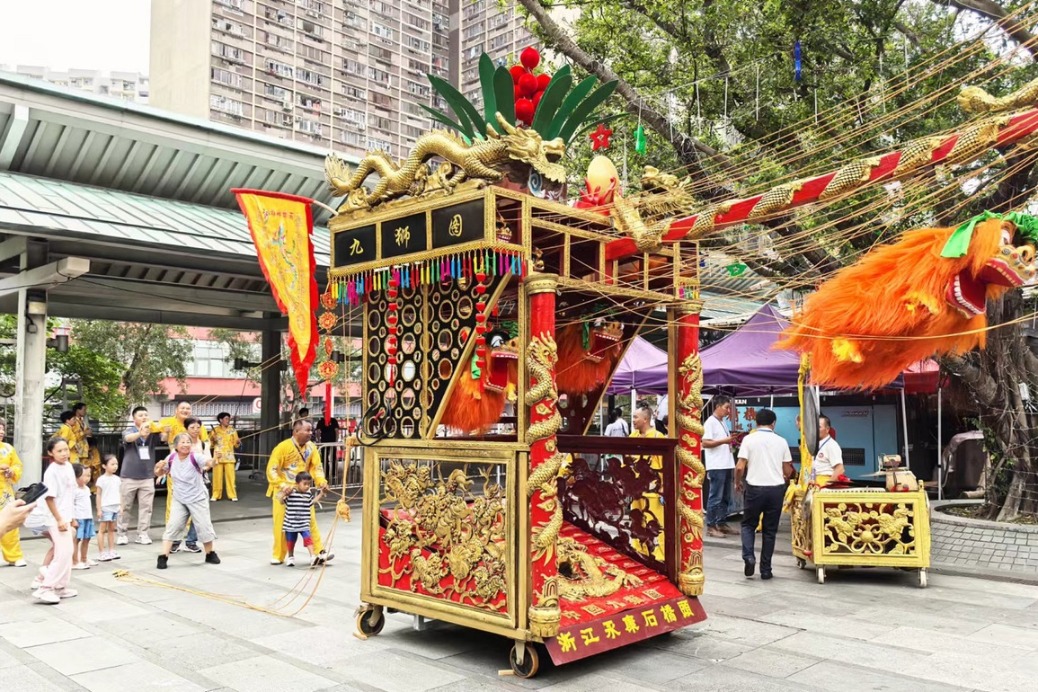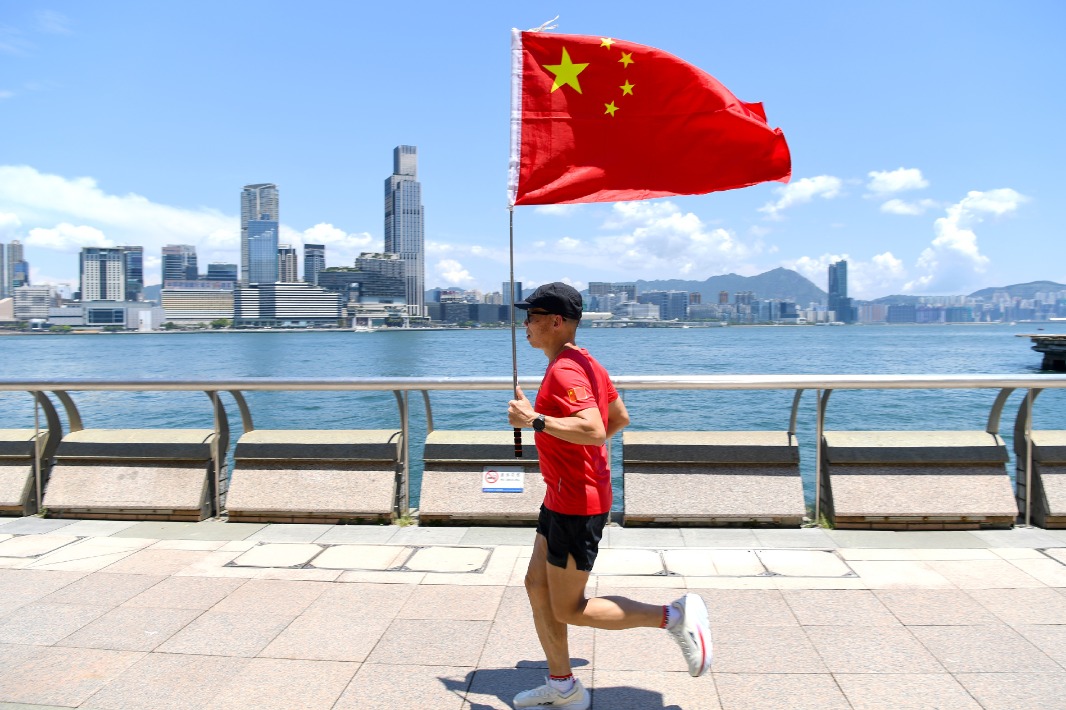Talent key to strong system for education
Experts echo Xi's words on cultivating high-quality workforce of teachers

President Xi Jinping's remarks during a recent national meeting on education have generated warm responses across China, with educators echoing the fundamental goal of nurturing talent to build a strong education system.
Xi, who is also general secretary of the Communist Party of China Central Committee and chairman of the Central Military Commission, called for efforts to make solid progress toward the strategic goal of building China into a leading nation in education.
It is essential to elevate the political and social status of teachers, enhance their benefits and safeguard their professional dignity in order to ensure that teaching is one of the most respected careers, Xi said.
Gu Mingyuan, a 94-year-old senior professor at Beijing Normal University, highlighted the importance of cultivating a high-quality teaching workforce while sharing his thoughts on Xi's speech in Beijing on Wednesday.
"We should focus on cultivating outstanding teachers with a deep passion for education, solid professional knowledge and strong foundational teaching skills," Gu said.
It is essential to help future teachers recognize the importance of education in the personal development of students and the growth of schools. "They should understand the unique and specific nature of the teaching profession, fostering a lifelong commitment to education and the goal of nurturing talent," he said.
Students majoring in education should gain practical work experience in schools early to gain an understanding of the environment, students and children's development, collaborating with experienced teachers to study teaching materials and refine their teaching skills, he added.
While delivering his speech at the meeting, Xi underscored the need to advance education development, scientific and technological innovation and talent cultivation in an integrated manner, with a focus on enhancing innovation capabilities based on the nation's strategic needs.
Yu Gang, director of the Advanced Interdisciplinary Institute of Environment and Ecology at Beijing Normal University, said by leveraging innovative approaches, "we can cultivate specialized talent urgently needed for societal development."
To address the needs of the Guangdong-Hong Kong-Macao Greater Bay Area, the newly established institute at the BNU Zhuhai campus in Guangdong province is focused on cutting-edge fields such as green and low-carbon technologies, healthcare and interdisciplinary research, said Yu, who is also an academician of the Chinese Academy of Engineering.
The curriculum of undergraduate programs will include specialized courses in frontier technologies, engineering management and practical training to cultivate top-tier innovative talent with interdisciplinary knowledge and skills, Yu said.
University teachers are expected to cooperate with enterprises to promote the application of scientific and technological outcomes and cultivate innovative talent to meet market demand, he added.
Zhang Zhiyong, a professor at BNU, said building a high-quality teaching workforce requires addressing questions in response to the decline in China's school-age population and the trend of urban population shifts.
"We need to consider questions including how to build a teaching workforce that meets the needs of personalized education, and how to construct a team that supports the comprehensive development of students," Zhang said.
To improve the qualifications of educators, more high-quality teachers with bachelor's and master's degrees are needed to build a high-quality teaching workforce, he added.
- Pingtan center a key stop for Taiwan compatriots seeking mainland qualifications
- Over 5,000 artists to take part in Shanghai festival
- Innovation, collaboration creating a brighter future for healthcare
- Honoring role models, Xi makes rallying call for making China stronger
- Profile: A Chinese doctor's ground-breaking battle against leukemia
- China publishes chronicle of CPC events from 1921 to 1949





































